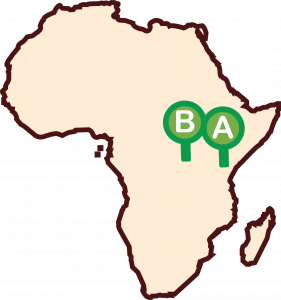H3Africa Collaborative Research Center
Intergenerational Epigenomics of Trauma and PTSD in Rwanda
The Goal: to characterize the intergenerational genomic impact of genocide exposure and post-traumatic stress disorder (PTSD) in women survivors of the Rwandan genocide and their offspring.
Project Leads
The Problem
PTSD is a common and debilitating mental disorder that has a profound public health impact. Between April and June 1994, almost one million people died in the Rwandan genocide against ethnic Tutsi. Twenty years later, the long-term impact is illustrated by the prevalence of PTSD in Rwandan adults at 26.1% and there is strong evidence pointing towards the intergenerational transmission of PTSD. Furthermore, research has revealed that PTSD can cause genetic effects in psychopathological development, and that these effects can be transmitted from pregnant mothers to their offspring, but little is known about the genomic process by which this occurs.
Project Strategy
- Enroll women who were pregnant during the Rwandan genocide and their resulting children, as well their younger siblings, and a demographically matched, non-genocide exposed control group.
- Identify (epi)genetic differences in the affected children, investigating both known areas of variation and seeking novel (epi)genetic effects of PTSD.
- Strengthen Rwandan capacity in bioinformatics and molecular genetics to study the etiology of other commonly occurring brain disorders (e.g. epilepsy, bipolar disorder, psychosis) in Rwanda.
Successes and Potential Impact
The findings from this study will shed light on the biologic mechanisms that contribute to increased risk of PTSD in a intergenerational context, inform the development of therapeutic interventions, and increase scientific capacity in Rwanda.
Project Sites

A: Rwanda
University of Rwanda
B: Uganda
MRC/UVRI & LSHTM
Non-African Collaborators:
USA: University of South Florida




